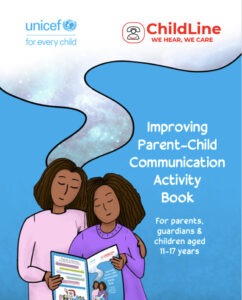Have you ever gotten into an argument or fight with someone? Or had a quarrel with your best friend? If you have, then you have experienced conflict.
Conflict is the disagreement between two or more persons who have different views.
There are so many reasons why conflict may occur, and many different ways in which people deal with conflict. It is almost impossible to live our lives totally conflict-free. Everyone has to deal with it, whether it happens often or once in a while. When it does happen, some people get angry and violent, and some people just avoid the situation without actually dealing with it.
There are healthier ways to deal with conflict that does not involve any violence or insulting words.
What Causes Conflict?
Since conflict is really a disagreement, when we have different points of view, it is easy to cause conflict. Remember, we all think differently, and have our own beliefs.
Conflict can be caused by:
- Our Emotions – Anger, jealousy and fear
- Differences in opinion, values and beliefs
- Misunderstandings
- Habits and culture
- Feeling unfairly treated
When there is conflict, you may:
- Become angry
- Lack motivation
- Feel stressed out
- Avoid the person you are in conflict with
What should I do?
Try to remember the last time you were in an argument or disagreement with someone. What did you do? How did you handle it? Were anyone’s feelings hurt? Was anyone injured? There is an approach to handling conflict that does not include fighting, hitting, cursing, or insulting each other. It does not matter how you are accustomed to dealing with conflict, anyone can try this way. All you need to do is follow these steps:
1. Calm Down
You won’t be able to think straight if you are still in a rage. If we are still angry, then we cannot really listen to the other person or try to understand their point of view. You can use these tips to help you calm down:
- Breathe Deeply
- Count from 1 to 10 – or count backwards
- Write down how you feel
- Walk away and take a time out
- Do something you enjoy
- Talk to someone
- Call ChildLine
2. Find a quiet place to talk where other people can not interrupt.
3. Let the other person talk, and listen carefully.
You should allow the other person to explain his or her point of view or their side of the story.
Do not:
- Interrupt the other person
- Assume that you know what the other person is going to say
4. When it is your turn, speak clearly and calmly.
Speak clearly and calmly so that the other person can understand you.
- Do not use words or tones that may hurt the other person’s feelings.
- Do not assume the other person knows what you are talking about.
- Make eye contact.
You should look at the other person in the eye to let them know that you are listening to them. If this is uncomfortable for you, do something else to let them know you are still paying attention to them- nod your head, say ‘ok’ or ‘yeah.’
6. Try to imagine how the other person sees things
Think about how that person is feeling. Remember, conflict is a disagreement which happens because we all have different views and ways of thinking. So, we should try to understand their way of thinking.
7. Compromise
When we compromise, it means that we find the middle ground…we take some and we give some. It is an agreement. Both persons can be happy in the end.
For example, if you have a little brother or sister, and you both fight over who gets the front seat of the car, try to find an arrangement that is fair to both of you – maybe you can take turns! That’s a compromise!
8. Take a time out if necessary
Remember, the first thing we did was try to calm down. If we are getting upset again, it is better to stop the conversation and find a way to calm down again before we continue. You can go for a walk, or just leave the room for a few minutes. Do not become violent and never hit anyone when you are angry, this is wrong, and will only make the situation worse.
Don’t think this method will work? Try it. Like any new technique, we need to keep practicing before we can perfect it. So if you don’t get it at first, keep trying- it will be worth it!
Research Sites
http://www.angermanagementtips.com/teens.htm
http://www.ncpc.org/topics/conflict-resolution/conflict-resolution-tips
Additional Information
http://foundationcoalition.org/publications/brochures/conflict.pdf
http://conflict911.com/resources/Conflict/







